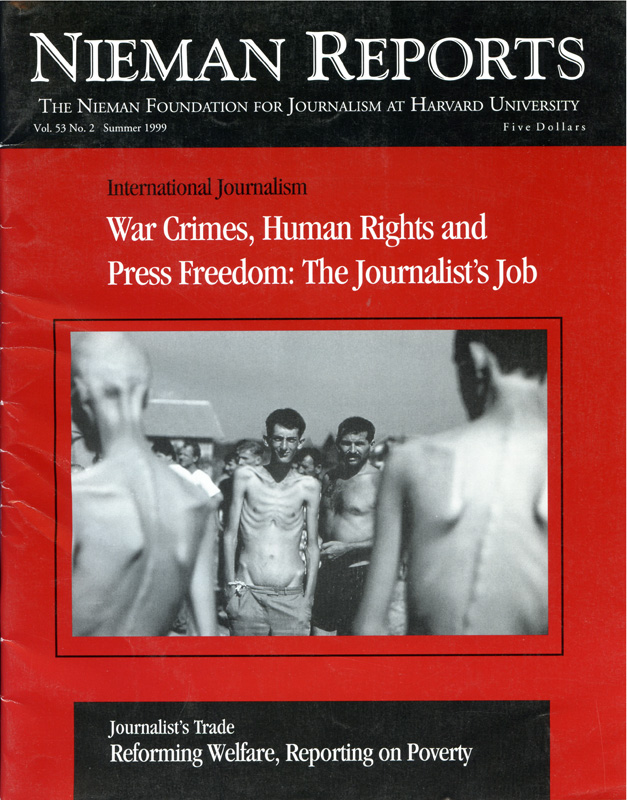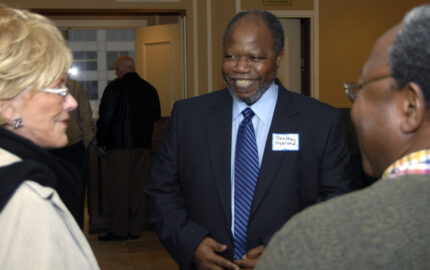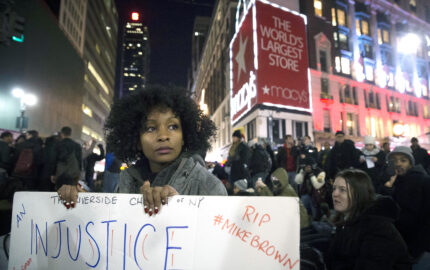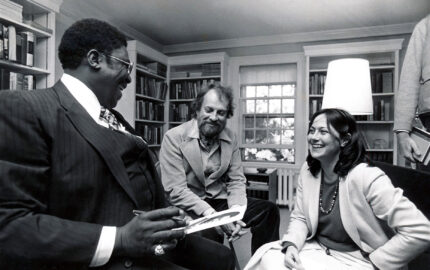As bombs seared into military barracks and air bases south of Belgrade, correspondents who had been ejected from Serbia and Kosovo were now on a radio show in Boston sorting through questions from confused callers. A woman with a clear American accent, the kind cleansed by college of any regional influence, said this sudden war had taken her by surprise. “I think it’s the media’s fault for not keeping us informed about what’s going on there,” she said.
The guests she blamed for her ignorance happened to be Roger Cohen from The New York Times, Sylvia Poggioli from National Public Radio, and Kurt Schork from Reuters—all old hands in the Balkans who routinely put their personal safety in great jeopardy so that Americans can be informed. If print, radio and wires weren’t enough to fill the caller’s craving for information, there was the rest of the news smorgasbord, Internet, television, cable and magazines, from which she could have found some sustenance. But one has to have the desire to look and read beyond the myopia of domestic concerns with which most Americans routinely distract themselves. The caller sounded intelligent, I thought, and had no excuse not to know what was going on in Kosovo, especially during the past year.
It is the duty of citizens to inform themselves. Yet I know in a fundamental way she is right, that journalists failed to connect with most Americans in their reporting on the Balkans. This I first began to suspect upon returning from covering that region’s civil war for annual vacations in America where my mother, an inveterate news junkie, said, “I don’t understand why those people are killing each other.” Some of my friends couldn’t keep the parties straight, didn’t know the difference between a Muslim, Croat or Serb. When I lobbied the executive producer of the “CBS Evening News” to give more time to stories on Bosnia, he said, “Nobody cares about babushkas!” The special “48 Hours” on the Dayton Accord, which I stubbornly pushed for and worked on, won an Emmy Award, but it was the lowest rated “48 Hours” since the program began.
There was a collective turning away from the civil war in the Balkans. Near the beginning of the war America was fixated on its own troubling story—the beating of Rodney King by several white police officers. Riots broke out in Los Angeles after those officers were exonerated—ethnic and racial allegiances took precedence over the common identity of being an American. Blacks, whites and Koreans turned on one other. After the riots, in 1992, presidential candidate Bill Clinton used the term “Balkanization” to describe America for the first time. It was an opportunity for journalists to make a meaningful connection between this country and the civil war in the former Yugoslavia.
Ethnic fragmentation begins when the police are no longer trusted to guard the rights of all and appear instead to be targeting specific groups. Fear, a primitive emotion, creates powerful allegiances propelled to fight or flight among the simplest denominators of race or religion. Abuse of police authority is the first step in the disintegration of the state and its institutions that protect human rights. It is met with equally swift reactions from citizens. This is how the nightmare began in Yugoslavia. This is one reason why America, with its many different races and ethnic minorities, must pay close attention.
This comparison, to my knowledge, was never made explicit. But now that we have the technology to instantly communicate what is going on from nearly anywhere in the world, we also have the duty to stand back periodically and survey the broader significance of a story. Civilizations, no matter where they are, require stable structures to be able to work. The melt-down in Yugoslavia was caused, in large part, by the corruption of government institutions when Slobodan Milosevic cultivated the language of hate previously outlawed by Josip Tito and turned the Yugoslav Army and the Interior Ministry on Croats and Muslims.
America periodically faces threats at home to this type of institutional corruption in each of its communities. African-Americans who especially suffer from police brutality and harassment bear testimony to this. Well before NATO began bombing Serbia, reference could have been made between the police persecution of ethnic Albanians in Kosovo and the gunning down of an innocent black man in New York, Amadou Diallo, by four white police officers. Both represent the unacceptable use of force by the state. While large street protests here were mainly peaceful and the four officers were charged with second-degree murder, the persistent lack of adjudication of human rights in Kosovo, through the courts with words instead of weapons, fueled a widening gyre of retaliation in which ethnic Albanians responded by building their own rebel force, the KLA.
Of course, the danger of making frequent comparisons such as this, between events in the United States and other nations, is that they are inevitably reductive and unable to capture the full complexity of each situation. New York is obviously not Kosovo, and it would be wrong and inflammatory to suggest that the New York City Police Department behaved as ruthlessly as the Serb police, or that blacks suffered at the hands of police to the same degree that the ethnic Albanians in Kosovo have. But the periodic use of metaphor can help to close the cultural gap, making foreign stories more accessible and perhaps more interesting to the public and editors alike.
While journalists cannot force citizens to absorb every nuance of our reporting in foreign lands (as much as we might like to), perhaps we could meet them partway by finding these areas of common concerns. The failure to do so results in the closure of foreign bureaus, the reduction of coverage, and a rise in the isolation felt by intelligent Americans who, like the caller on the radio that morning, feel unqualified to analyze or react to an international crisis. Susan E. Reed, a 1999 Nieman Fellow, covered the Balkans as a producer for CBS News from 1992-1995.
The guests she blamed for her ignorance happened to be Roger Cohen from The New York Times, Sylvia Poggioli from National Public Radio, and Kurt Schork from Reuters—all old hands in the Balkans who routinely put their personal safety in great jeopardy so that Americans can be informed. If print, radio and wires weren’t enough to fill the caller’s craving for information, there was the rest of the news smorgasbord, Internet, television, cable and magazines, from which she could have found some sustenance. But one has to have the desire to look and read beyond the myopia of domestic concerns with which most Americans routinely distract themselves. The caller sounded intelligent, I thought, and had no excuse not to know what was going on in Kosovo, especially during the past year.
It is the duty of citizens to inform themselves. Yet I know in a fundamental way she is right, that journalists failed to connect with most Americans in their reporting on the Balkans. This I first began to suspect upon returning from covering that region’s civil war for annual vacations in America where my mother, an inveterate news junkie, said, “I don’t understand why those people are killing each other.” Some of my friends couldn’t keep the parties straight, didn’t know the difference between a Muslim, Croat or Serb. When I lobbied the executive producer of the “CBS Evening News” to give more time to stories on Bosnia, he said, “Nobody cares about babushkas!” The special “48 Hours” on the Dayton Accord, which I stubbornly pushed for and worked on, won an Emmy Award, but it was the lowest rated “48 Hours” since the program began.
There was a collective turning away from the civil war in the Balkans. Near the beginning of the war America was fixated on its own troubling story—the beating of Rodney King by several white police officers. Riots broke out in Los Angeles after those officers were exonerated—ethnic and racial allegiances took precedence over the common identity of being an American. Blacks, whites and Koreans turned on one other. After the riots, in 1992, presidential candidate Bill Clinton used the term “Balkanization” to describe America for the first time. It was an opportunity for journalists to make a meaningful connection between this country and the civil war in the former Yugoslavia.
Ethnic fragmentation begins when the police are no longer trusted to guard the rights of all and appear instead to be targeting specific groups. Fear, a primitive emotion, creates powerful allegiances propelled to fight or flight among the simplest denominators of race or religion. Abuse of police authority is the first step in the disintegration of the state and its institutions that protect human rights. It is met with equally swift reactions from citizens. This is how the nightmare began in Yugoslavia. This is one reason why America, with its many different races and ethnic minorities, must pay close attention.
This comparison, to my knowledge, was never made explicit. But now that we have the technology to instantly communicate what is going on from nearly anywhere in the world, we also have the duty to stand back periodically and survey the broader significance of a story. Civilizations, no matter where they are, require stable structures to be able to work. The melt-down in Yugoslavia was caused, in large part, by the corruption of government institutions when Slobodan Milosevic cultivated the language of hate previously outlawed by Josip Tito and turned the Yugoslav Army and the Interior Ministry on Croats and Muslims.
America periodically faces threats at home to this type of institutional corruption in each of its communities. African-Americans who especially suffer from police brutality and harassment bear testimony to this. Well before NATO began bombing Serbia, reference could have been made between the police persecution of ethnic Albanians in Kosovo and the gunning down of an innocent black man in New York, Amadou Diallo, by four white police officers. Both represent the unacceptable use of force by the state. While large street protests here were mainly peaceful and the four officers were charged with second-degree murder, the persistent lack of adjudication of human rights in Kosovo, through the courts with words instead of weapons, fueled a widening gyre of retaliation in which ethnic Albanians responded by building their own rebel force, the KLA.
Of course, the danger of making frequent comparisons such as this, between events in the United States and other nations, is that they are inevitably reductive and unable to capture the full complexity of each situation. New York is obviously not Kosovo, and it would be wrong and inflammatory to suggest that the New York City Police Department behaved as ruthlessly as the Serb police, or that blacks suffered at the hands of police to the same degree that the ethnic Albanians in Kosovo have. But the periodic use of metaphor can help to close the cultural gap, making foreign stories more accessible and perhaps more interesting to the public and editors alike.
While journalists cannot force citizens to absorb every nuance of our reporting in foreign lands (as much as we might like to), perhaps we could meet them partway by finding these areas of common concerns. The failure to do so results in the closure of foreign bureaus, the reduction of coverage, and a rise in the isolation felt by intelligent Americans who, like the caller on the radio that morning, feel unqualified to analyze or react to an international crisis. Susan E. Reed, a 1999 Nieman Fellow, covered the Balkans as a producer for CBS News from 1992-1995.



